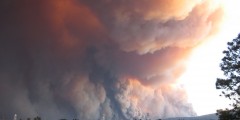Endemic confusion
January 7, 2022
A few days ago, I saw this tweet by Bill Hanage and smiled: “For some reason there seems to be a lot of talk about endemicity again. For the avoidance of doubt, omicron is not endemic right now in much the same way that the moon is not a hamster”. I read many of the …
Science, politics and integrity
October 15, 2021
On 12 October three things appeared in my Twitter timeline: a report, an academic paper and an interview, all dealing with science and politics in the context of the management of the coronavirus pandemic. Most importantly, there was the House of Commons report which showed for all to see what a shambles the UK government’s …
Covid, cowering and cowardice
July 25, 2021
We all remember Boris Johnson saying in March 2020 that we should take covid on the chin, followed by him saying in April that year that Covid was an invisible mugger that one should wrestle to the floor. This metaphorical framing of the virus as a physical assailant and of those having to deal with …
Coronavirus and mental health: Risks, protective factors and care
July 2, 2021
This is a guest post by Dr Rusi Jaspal who is Professor of Psychology at Nottingham Trent University in the UK. E-mail: rusi.jaspal@ntu.ac.uk Twitter: @ProfRJaspal *** For several years, my colleagues and I have studied the effects of major social change on people’s sense of identity and psychological wellbeing. We have done so primarily through …
From stigma to sigma? The covid variant naming conundrum continues
June 3, 2021
On 31 May the World Health Organisation tweeted: “Today WHO has announced a new naming system for key #COVID19 variants. The labels are based on the Greek alphabet (i.e. Alpha, Beta, Gamma, etc), making them simple, easy to say and remember.” In her retweet of that tweet Alice Roberts said “…delta, epsilon, zeta, eta, theta, …










